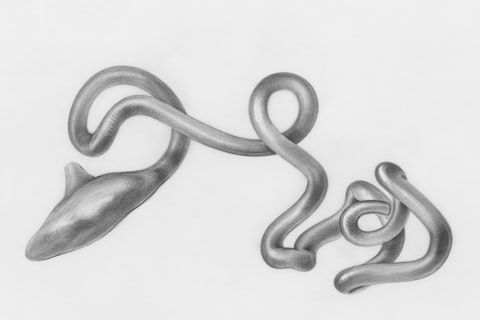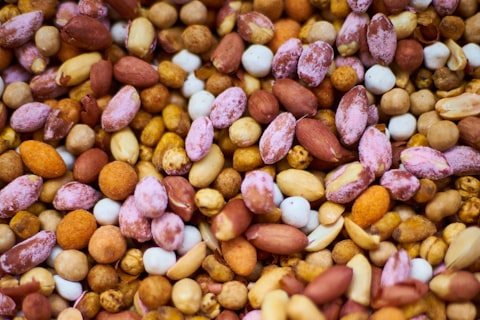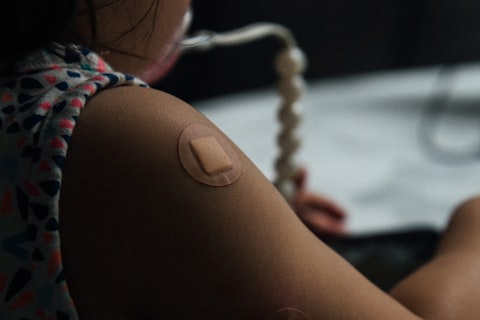The Crucial Role of the Small Intestine in Digestion
Keywords
Small Intestine Digestion Nutrient Absorption Digestive System Villi Microvilli Enzymes Gut Microbiota Digestive Disorders
An Overview of the Digestive System
The digestive system is a complex network responsible for nutrient breakdown and absorption, with each organ playing a specific role.
-
Mouth: Begins the digestion process.
-
Esophagus: Transports food to the stomach.
-
Stomach: Continues digestion with acids and enzymes.
-
Small Intestine: Main site for nutrient absorption.
-
Large Intestine: Absorbs water and forms waste.
Figures
Digestive System Components:
Images


The Small Intestine: Structure and Function
The small intestine, a long coiled tube, is crucial for digestion and nutrient absorption, with its inner lining significantly increasing the surface area.
-
Duodenum: Receives partially digested food.
-
Jejunum: Continues enzymatic breakdown.
-
Ileum: Absorbs nutrients into the bloodstream.
Figures
Small Intestine Anatomy:
Images


Digestive Processes in the Small Intestine
The small intestine uses enzymes and bile to break down food and absorb nutrients, with villi and microvilli enhancing the process.
-
Enzymatic Breakdown: Converts food into absorbable molecules.
-
Bile and Pancreatic Juice: Aid in fat digestion.
-
Nutrient Absorption: Through the intestinal wall into the bloodstream.
Figures
Nutrient Absorption Process:
Images


Importance of Villi and Microvilli
Villi and microvilli in the small intestine are essential for efficient nutrient absorption, increasing the surface area and containing vessels for nutrient transport.
- Villi: Increase surface area and contain blood vessels.
- Microvilli: Further enhance nutrient absorption.
Figures
Villi and Microvilli Function:
Images


Conclusion
The small intestine is a vital organ for digestion, nutrient absorption, and overall health. A balanced diet and healthy habits are key to maintaining its function.
-
Diet: Influences small intestine health.
-
Disorders: Can disrupt its function.
-
Immune Function: GALT in the small intestine regulates immunity.
Figures
Maintaining Small Intestine Health:
Images


Visit Unsplash for more images
-
Introduction
-
An Overview of the Digestive System
-
The Small Intestine: Structure and Function
- Anatomy of the Small Intestine
- Role in Digestion
-
Digestive Processes in the Small Intestine
- Absorption of Nutrients
- Enzymatic Breakdown
- Bile and Pancreatic Juice
-
Importance of Villi and Microvilli
-
Interaction with Gut Microbiota
-
Regulation of Digestive Enzymes
-
Common Disorders Affecting the Small Intestine
-
Maintaining Small Intestine Health
-
The Impact of Diet on Small Intestine Function
-
Small Intestine and Nutrient Absorption
-
Small Intestine and Immune Function
-
Small Intestine and Hormone Regulation
-
Role of the Small Intestine in Overall Health
-
Conclusion
The Crucial Role of the Small Intestine in Digestion
The small intestine plays a vital role in the digestive process, serving as a key site for nutrient absorption and further breakdown of food particles. Understanding the intricate functions of the small intestine is essential for comprehending how our bodies extract essential nutrients from the foods we consume.
An Overview of the Digestive System
The digestive system is a complex network of organs responsible for breaking down food into nutrients that can be absorbed and utilized by the body. It consists of various components, including the mouth, esophagus, stomach, small intestine, and large intestine, each playing a specific role in the digestion and absorption of nutrients.
The Small Intestine: Structure and Function
Anatomy of the Small Intestine
The small intestine is a long, coiled tube that extends from the stomach to the large intestine. It is divided into three sections: the duodenum, jejunum, and ileum. The inner lining of the small intestine is covered with tiny finger-like projections called villi and microvilli, which significantly increase the surface area for nutrient absorption.
Role in Digestion
The small intestine is where the majority of digestion and nutrient absorption take place. It receives partially digested food from the stomach and continues the breakdown process using enzymes produced by the pancreas and bile from the liver. The small intestine is also responsible for absorbing nutrients such as carbohydrates, proteins, fats, vitamins, and minerals into the bloodstream for distribution to the body's cells.
Digestive Processes in the Small Intestine
Absorption of Nutrients
The small intestine is lined with specialized cells that facilitate the absorption of nutrients. These nutrients pass through the intestinal wall and enter the bloodstream to be transported to various organs and tissues in the body. The villi and microvilli play a crucial role in this absorption process by increasing the surface area available for nutrient uptake.
Enzymatic Breakdown
Enzymes secreted by the pancreas and small intestine help break down carbohydrates, proteins, and fats into smaller molecules that can be easily absorbed. This enzymatic breakdown is essential for extracting nutrients from food and converting them into forms that the body can use for energy and cellular function.
Bile and Pancreatic Juice
Bile, produced by the liver and stored in the gallbladder, is released into the small intestine to aid in the digestion and absorption of fats. Pancreatic juice, rich in enzymes, is also secreted into the small intestine to further break down carbohydrates, proteins, and fats into their component parts for absorption.
Importance of Villi and Microvilli
The villi and microvilli in the small intestine play a crucial role in nutrient absorption. These tiny structures increase the surface area of the small intestine, allowing for more efficient absorption of nutrients. Villi contain blood vessels and lymphatic vessels that transport nutrients to the rest of the body, while microvilli further enhance nutrient absorption by increasing the surface area available for nutrient uptake.
Interaction with Gut Microbiota
The small intestine interacts with the gut microbiota, the community of beneficial bacteria that reside in the digestive tract. These bacteria play a vital role in digestion, nutrient absorption, and immune function. The small intestine provides a habitat for these bacteria and helps regulate their growth and activity, contributing to overall digestive health.
Regulation of Digestive Enzymes
The small intestine regulates the release of digestive enzymes to ensure that food is properly broken down and nutrients are efficiently absorbed. Hormones and nerve signals control the secretion of enzymes from the pancreas and small intestine, coordinating the digestive process and optimizing nutrient uptake.
Common Disorders Affecting the Small Intestine
Several disorders can affect the small intestine, including celiac disease, Crohn's disease, irritable bowel syndrome (IBS), and small intestinal bacterial overgrowth (SIBO). These conditions can disrupt the normal functioning of the small intestine, leading to symptoms such as abdominal pain, bloating, diarrhea, and nutrient malabsorption.
Maintaining Small Intestine Health
To maintain the health of the small intestine, it is essential to follow a balanced diet rich in fiber, vitamins, and minerals. Avoiding processed foods, excessive sugar, and alcohol can help support the integrity of the intestinal lining and promote optimal digestion and nutrient absorption.
The Impact of Diet on Small Intestine Function
Diet plays a significant role in small intestine function, as certain foods can either support or hinder the digestive process. Consuming a diet high in fiber, fruits, vegetables, and lean proteins can promote healthy digestion and nutrient absorption, while excessive consumption of processed foods and unhealthy fats can strain the small intestine and lead to digestive issues.
Small Intestine and Nutrient Absorption
The small intestine is responsible for absorbing a wide range of nutrients, including carbohydrates, proteins, fats, vitamins, and minerals. Proper functioning of the small intestine is essential for extracting these nutrients from food and delivering them to the body's cells for energy production, growth, and repair.
Small Intestine and Immune Function
The small intestine plays a critical role in immune function, as it is constantly exposed to food antigens, pathogens, and foreign substances. The gut-associated lymphoid tissue (GALT) in the small intestine helps regulate immune responses and protect against infections, allergies, and autoimmune conditions.
Small Intestine and Hormone Regulation
The small intestine produces hormones that help regulate digestion, appetite, and nutrient absorption. Hormones like cholecystokinin (CCK) and secretin signal the release of digestive enzymes and bile, while peptide YY (PYY) and glucagon-like peptide-1 (GLP-1) control appetite and satiety.
Role of the Small Intestine in Overall Health
The small intestine plays a crucial role in overall health by ensuring proper digestion, nutrient absorption, and immune function. Maintaining a healthy small intestine is essential for optimal well-being and can help prevent digestive disorders, nutrient deficiencies, and immune-related conditions.
Conclusion
In conclusion, the small intestine is a vital organ in the digestive system, responsible for the breakdown and absorption of nutrients essential for the body's functioning. Understanding the role of the small intestine in digestion can help individuals make informed choices about their diet and lifestyle to support optimal digestive health and overall well-being. By prioritizing small intestine health through a balanced diet, proper hydration, and healthy habits, individuals can promote efficient digestion, nutrient absorption, and immune function for long-term health and vitality.






